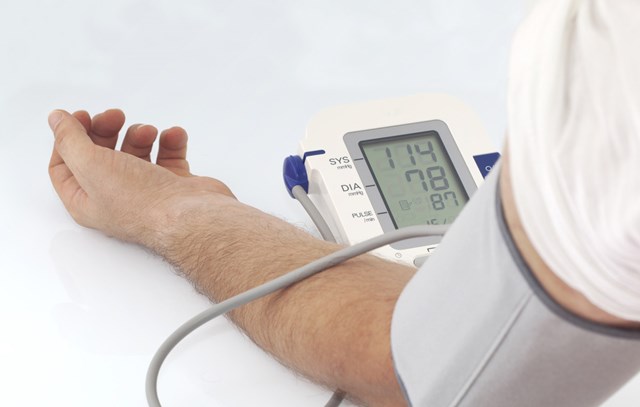
Typically when you get your blood pressure taken, you only stick out one arm.
Better roll up both sleeves: Differences between BP measurements in each arm could signal serious heart issues, suggests new research from England.
In the study, people whose systolic blood pressure—the top number in your BP reading—differed by 5 to 10 millimeters of mercury (mmHg) from one arm to the other were almost twice as likely to die from a heart-related disease than those whose readings were more equal.
A slight fluctuation below 5 mmHg is normal, and can be explained by asymmetrical differences in your muscles and tissue in each arm, says lead study author Christopher Clark.
But larger differences in the readings—like the 5 to 10 mmHg discrepancy in the study—can point to more serious issues.
One such condition is stenosis, or the narrowing of a large artery. This could lead to a lower blood pressure reading from the arm on the side with the narrowed artery, says Clark.
“This kind of narrowing can indicate more widespread arterial disease, which we know can lead to heart attacks, strokes, and death,” he says.
High blood pressure can also cause your arteries to stiffen, often before any other markers of disease become apparent.
This could affect your blood pressure in the arm on the side with the stiffened artery, which makes your heart work harder to pump blood—leaving you at risk for angina, heart attacks, and stroke.
At your next checkup, have your doctor check both of your arms simultaneously. If your systolic pressures differ by more than 5mmHg, ask for a second reading after 1 minute to see if it persists.
If that difference remains even after a second reading, your doctor might move on with other testing—like blood tests, urine tests, and EKGs—to rule out conditions like diabetes and kidney problems.
















